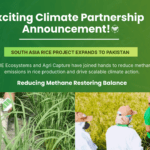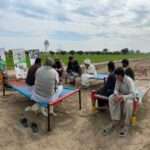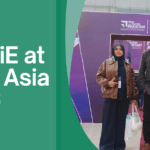News
SAWiE to Present at COP29 Azerbaijan: Advancing Resilient Food Systems
SAWiE (Sustainable Agriculture and Water Innovations for Ecosystems) is proud to announce its participation in COP29 Azerbaijan, where Dr. Khalid Mahmood will represent the organization in a high-profile panel discussion titled “Towards More Resilient Food Systems.” This pivotal session is scheduled for November 19, 11:30 AM to 12:30 PM, at the Pakistan Pavilion.

Top News
The Climate-Food Crisis Nexus in Pakistan
Pakistan ranks among the top 10 nations most vulnerable to climate change. The country faces a dual crisis of climate vulnerability and food insecurity. Alarmingly:
- Malnutrition: Approximately 40% of children under five suffer from malnutrition.
- Food Insecurity: Up to 60% of the population is food insecure.
Climate change exacerbates these challenges, intensifying extreme weather events, reducing crop yields, and degrading soil and environmental conditions. These issues threaten the livelihoods of millions of farmers and the nation’s food supply.
Agriculture’s Role in the Crisis
Agriculture forms the backbone of Pakistan’s economy:
- Employing 43% of the labor force.
- Consuming 93% of the country’s freshwater resources, often inefficiently.
Yet, traditional farming methods contribute significantly to environmental degradation:
- Methane Emissions: Paddy fields are a major source of methane, a greenhouse gas 25 times more potent than CO2.
- GHG Contributions: Agriculture accounts for a significant share of Pakistan’s greenhouse gas emissions.
SAWiE’s Vision: Transforming Food Systems
Dr. Khalid Mahmood will highlight SAWiE’s work in transforming food systems to address the intertwined challenges of food security and climate change. The organization’s approach is rooted in regenerative and climate-smart agricultural practices.
1. Regenerative Agriculture Clusters
SAWiE fosters collaborative clusters of farmers to:
- Enhance soil health through organic practices.
- Promote water-efficient irrigation techniques to reduce resource wastage.
- Implement eco-friendly farming methods to minimize GHG emissions.
These clusters serve as models for sustainable farming, equipping farmers, especially women, with the tools and knowledge to increase income and resilience.
2. Farmer Empowerment through Workshops
Workshops led by SAWiE provide:
- Training on sustainable farming practices.
- Guidance on improving climate adaptation and GHG mitigation strategies.
This knowledge transfer empowers stakeholders to adopt sustainable solutions, ensuring food security for future generations.
3. Integration with Global Agendas
SAWiE aligns its initiatives with global climate goals, including the following:
- Global Methane Pledge: Advocating for reduced methane emissions from rice cultivation.
- Loss and Damage Fund: Supporting vulnerable nations through climate finance.
By participating in platforms like COP29, SAWiE amplifies its voice in global efforts to achieve the 1.5°C climate target.
The Urgency of Action at COP29
As global leaders convene in Azerbaijan, the focus must remain on actionable outcomes:
- Addressing Food Security: Ensuring access to sufficient, nutritious food amidst rising climate impacts.
- Mitigating GHG Emissions: Transforming agriculture to reduce methane and other emissions.
- Adopting Sustainable Practices: Scaling innovative solutions like regenerative agriculture to build resilient systems.
Pakistan’s Role on the Global Stage
SAWiE’s efforts align with Pakistan’s broader strategy to combat climate change and food insecurity. The nation’s vulnerabilities demand urgent action, including:
- Scaling climate-smart agriculture across key regions.
- Reforming water management policies to improve efficiency and equity.
- Investing in women-led farming initiatives to drive socio-economic resilience.
Join the Discussion
The session “Towards More Resilient Food Systems” at COP29 Azerbaijan provides an opportunity to explore cutting-edge strategies for sustainable agriculture. Stakeholders from around the world will discuss innovative solutions to secure a better future for vulnerable populations.
SAWiE invites policymakers, researchers, and practitioners to join this critical dialogue, fostering collaborations that address the climate-food nexus.
A Call to Action
The interconnected challenges of climate change and food security require transformative solutions. SAWiE’s work demonstrates that sustainable practices not only mitigate climate impacts but also empower communities to thrive.
Let’s build a future where resilient food systems ensure sustainability for both people and the planet.



